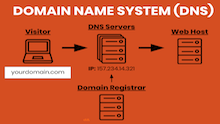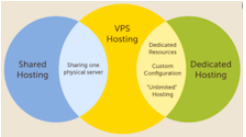
As is widely understood, all websites hosted on Linux Shared Hosting utilize the same server resources. Therefore, to provide optimal performance for every site, there are restrictions on resource usage for CPU, RAM, I/O, inodes, and entry processes. This article outlines how these resources impact your website and scenarios in which you might consider upgrading your hosting plan. CPU The…

You are ready to launch your website after creating it with Web Hosting (cPanel). You must ensure that DNS is set up correctly in order for your website to be accessible on the internet. cPanel, whether on shared hosting or dedicated servers, allows you to manage a website and email for your domains. To connect your domain name to your…

When beginning web development, we frequently encounter the question: Should I opt for Windows hosting or Linux hosting? Regardless of the hosting type, you can utilize a web browser such as Firefox, Chrome, or Safari to manage your accounts and websites. Thus, it’s possible to operate your Windows Hosting account from a MacBook or a Linux Hosting account from a…

In this post, discover different types of Linux cPanel web hosting, including Shared Hosting, Business Web Hosting, VPS (Virtual Private Server), and the essential requirements for each category of Linux hosting. The chart below outlines the essential criteria for each category of Linux hosting that should be considered prior to making a purchase. Shared Hosting Business Hosting VPS Hosting Level…

